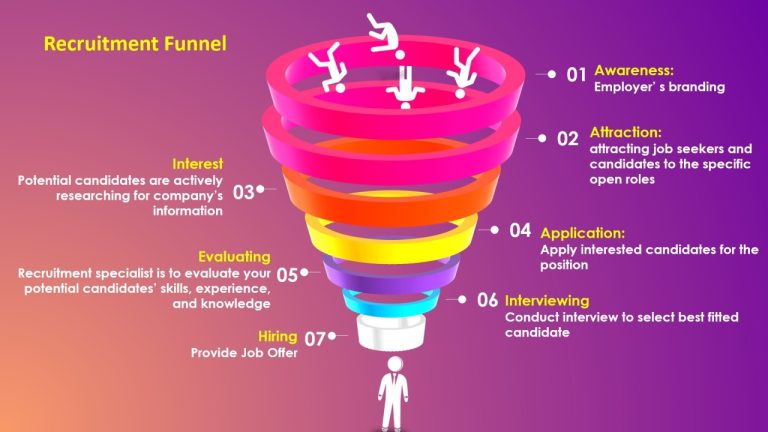Table of Contents
Introduction
In today’s digital age, social media has become a powerful tool for organizations to attract and engage top talent. Building a recruitment funnel on social media enables recruiters to connect with potential candidates at various stages, from initial brand awareness to final hire. By strategically using platforms like LinkedIn, Facebook, Instagram, and even Twitter, companies can effectively reach a broader audience, engage passive candidates, and create a dynamic talent pipeline. This article will explore how to leverage social media to create a robust recruitment funnel that draws in quality candidates and streamlines the hiring process.
Key Strategies to Build an Effective Recruitment Funnel on Social Media
1. Building Brand Awareness through Content Sharing
One of the first steps in creating a social media recruitment funnel is building brand awareness. Sharing engaging content that showcases company culture, values, and achievements can attract potential candidates and position your brand as an employer of choice. This might include employee testimonials, behind-the-scenes photos, or posts about community involvement. Highlighting what makes your organization unique gives prospective applicants an authentic glimpse into your work environment. By consistently posting this type of content, companies can increase their visibility and build trust among social media followers.
2. Targeting Passive Candidates with Facebook Recruiting
Social media allows recruiters to target passive candidates—those who may not be actively job searching but could be interested in new opportunities. Facebook recruiting provides tools to reach a wide audience through targeted ads based on location, interests, and professional experience. By carefully targeting these ads, recruiters can attract qualified individuals who might otherwise not engage with the company. Furthermore, posting job openings or career-related content on a company’s Facebook page allows passive candidates to stay informed about opportunities, which can encourage them to apply when the right role arises.
3. Utilizing Recruiting Apps to Engage Candidates at Different Funnel Stages
In addition to using individual social media platforms, integrating recruiting apps can help streamline communication with candidates across various stages of the funnel. These apps can automate messaging, schedule interviews, and track candidate engagement, ensuring that potential hires feel connected throughout the recruitment process. Additionally, some recruiting apps can help nurture candidates who show initial interest but aren’t yet ready to apply, enabling recruiters to stay top-of-mind until candidates are ready to take the next step. This seamless communication builds a positive candidate experience, reinforcing their interest in the company.
4. Engaging with Candidates through LinkedIn Networking
LinkedIn is one of the most effective platforms for engaging professional candidates, as it allows companies to connect directly with individuals based on their skills, experience, and industry. By actively engaging with LinkedIn users—whether through InMail, commenting on posts, or sharing thought leadership content—recruiters can strengthen their relationships with potential candidates. LinkedIn groups and forums are also valuable resources, enabling companies to engage with specific communities and create personalized interactions that foster candidate interest and trust. This networking approach enhances brand visibility and positions the company as a leader in its field.
5. Leveraging Analytics to Refine the Recruitment Funnel
Data and analytics play a crucial role in refining the recruitment funnel on social media. By tracking metrics such as engagement rates, click-through rates, and application conversions, recruiters can identify which platforms and types of content are most effective. This data-driven approach allows companies to optimize their social media recruitment strategies over time, focusing efforts where they generate the best results. Analytics can also provide insights into candidate demographics and behavior, helping companies fine-tune their targeting strategies to better align with their ideal candidate profiles.
Conclusion
Using social media to build an effective recruitment funnel is an essential strategy for organizations seeking to engage top talent in today’s competitive market. By focusing on brand awareness, targeting passive candidates, utilizing tools like recruiting apps and Facebook recruiting ads, and leveraging data insights, companies can create a streamlined recruitment process that attracts high-quality candidates. As the role of social media in recruitment continues to grow, a well-executed social media recruitment funnel will become increasingly vital to building a dynamic and diverse workforce.
